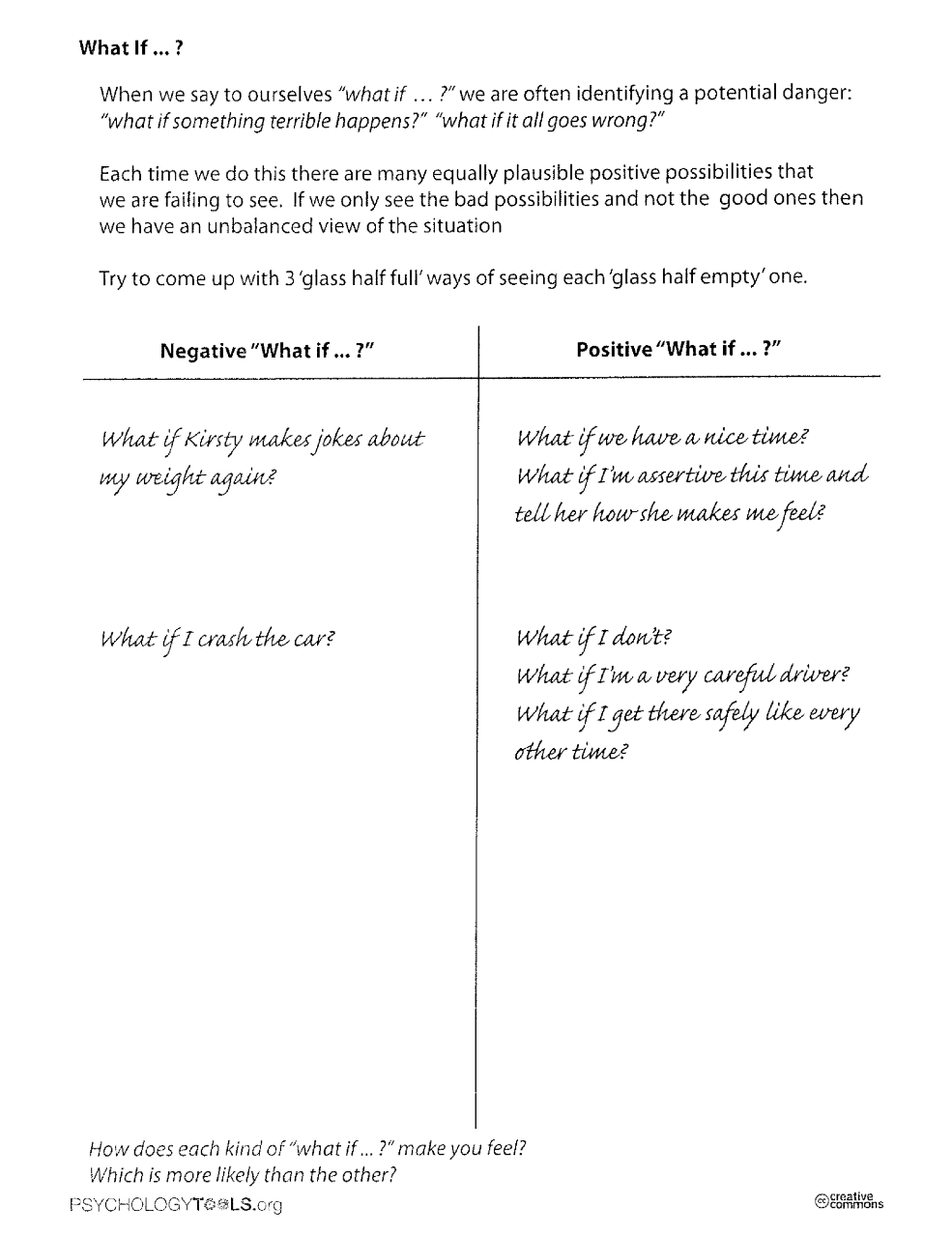What if thinking is normal and common, and to an extent can help keep other perspectives in mind; however, what if thinking tends to become problematic whenever prolonged, chronic, or when it causes distress, anxiety, and interferes with daily life functioning.
Here are some common what if thinking themes that are referenced in an article listed below:
- Thoughts involving the home (“What if I can’t make my mortgage or rent”)
- Thoughts involving work (“What if I lose my job or get kicked out of the program”)
- Thoughts involving finances (“What if I can’t pay for my expenses”)
- Thoughts involving relationships (“What if my partner is cheating on me”)
- Thoughts involving health (“What if that spot on my skin is cancer”)
- Thoughts involving the future (“What if I end up alone”)
Sometimes, what if thinking themes can involve the past ("What if they don’t forgive me for what I said?”) or pre-existing anxiety (“What if I have a panic attack during my exam?”). The thing is, it’s common to experience what if thinking, but it’s important to stop the what if thought if it is only making matters worse for you.
Application piece? If you struggle with what if thinking, check out this article for some simple steps to take: 5 Ways to Stop a Worry-Filled What-If Cycle (psychcentral.com)
Also, here is one of my favorite worksheets from psychology tools to also guide this practice of shifting our mindset from negative thinking to more balanced thought.
